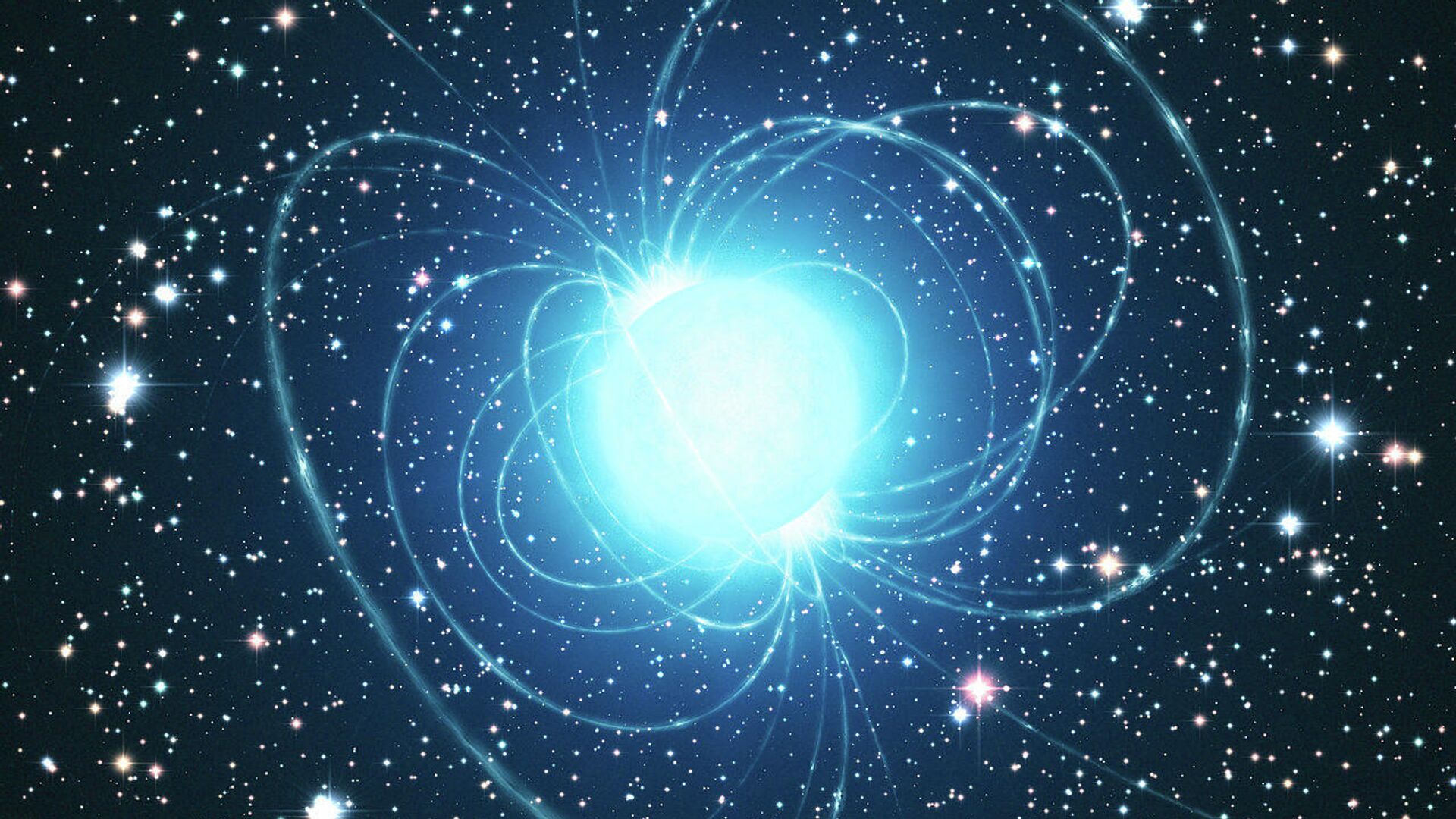https://sputnikglobe.com/20220714/like-a-heartbeat-unusual-periodic-signal-from-distant-galaxy-caught-by-astronomers-1097313469.html
'Like a Heartbeat': Unusual 'Periodic' Signal From Distant Galaxy Caught by Astronomers
'Like a Heartbeat': Unusual 'Periodic' Signal From Distant Galaxy Caught by Astronomers
Sputnik International
While the exact source of the signal was not immediately clear, a “magnetar or pulsar on steroids” were named as likely suspects. 14.07.2022, Sputnik International
2022-07-14T13:22+0000
2022-07-14T13:22+0000
2022-07-14T13:22+0000
fast radio burst (frb)
signal
discovery
https://cdn1.img.sputnikglobe.com/img/07e6/01/1b/1092554940_0:93:1281:813_1920x0_80_0_0_a3142a3971564a05035ddea2bfa69dae.jpg
Astronomers have detected a peculiar persistent signal emanating from a galaxy located billions of light years away.The new signal, classified as a fast radio burst (FRB) and designated FRB 20191221A, persists for up to three seconds, which is much longer than average FRBs that usually last for a few milliseconds, according to a press release by MIT.The team that studied the signal also detected a periodic pattern within it, with radio wave busts repeating every 0.2 seconds, almost like a beating heart.He also pointed out that “there are not many things in the universe that emit strictly periodic signals.”The team now hopes to detect more similar signals from the same source in a bid to learn more about what produces them.
https://sputnikglobe.com/20220504/alternative-explanation-for-mysterious-gamma-ray-signal-from-galactic-centre-proposed-by-scientists-1095264169.html
Sputnik International
feedback@sputniknews.com
+74956456601
MIA „Rosiya Segodnya“
2022
Sputnik International
feedback@sputniknews.com
+74956456601
MIA „Rosiya Segodnya“
News
en_EN
Sputnik International
feedback@sputniknews.com
+74956456601
MIA „Rosiya Segodnya“
Sputnik International
feedback@sputniknews.com
+74956456601
MIA „Rosiya Segodnya“
fast radio burst (frb), signal, discovery
fast radio burst (frb), signal, discovery
'Like a Heartbeat': Unusual 'Periodic' Signal From Distant Galaxy Caught by Astronomers
While the exact source of the signal was not immediately clear, a “magnetar or pulsar on steroids” were named as likely suspects.
Astronomers have detected a peculiar persistent signal emanating from a galaxy located billions of light years away.
The new signal, classified as a fast radio burst (FRB) and designated FRB 20191221A, persists for up to three seconds, which is much longer than average FRBs that usually last for a few milliseconds, according to a press release by MIT.
The team that studied the signal also detected a periodic pattern within it, with radio wave busts repeating every 0.2 seconds, almost like a beating heart.
“It was unusual,” said Daniele Michilli, postdoctoral researcher at MIT’s Kavli Institute for Astrophysics and Space Research. “Not only was it very long, lasting about three seconds, but there were periodic peaks that were remarkably precise, emitting every fraction of a second — boom, boom, boom — like a heartbeat. This is the first time the signal itself is periodic.”
He also pointed out that “there are not many things in the universe that emit strictly periodic signals.”
“Examples that we know of in our own galaxy are radio pulsars and magnetars, which rotate and produce a beamed emission similar to a lighthouse,” Michilli explained. “And we think this new signal could be a magnetar or pulsar on steroids.”
The team now hopes to detect more similar signals from the same source in a bid to learn more about what produces them.




